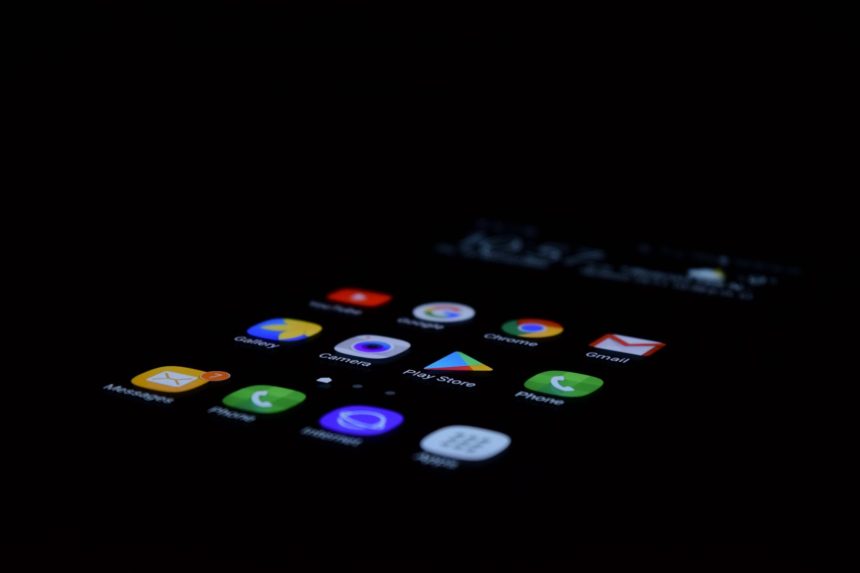As part of a settlement regarding its Play Store, Google has declared that it would pay $700 million. A total of $630 million will go to American consumers as part of the September settlement, while $70 million will go to a fund that states in the US use. The class-action lawsuit that brought attention to Google’s dominance in the Android app distribution market through the Play Store led to this settlement.
Growing the User-Selected Billing Initiative
In the United States, Google launched a test program in November 2022 known as the user choice billing program. By participating in this program, developers can accept a wider variety of in-app payment methods. The settlement includes Google’s decision to roll out the program nationwide. Depending on the customer’s preferred method of payment, developers can now display different purchase costs within the app. More options and freedom for users to make in-app purchases is the goal of this change.
Maximizing Efficiency in Sideloading
Google is also obligated to simplify Android’s sideloading process as part of the settlement. Currently, a warning message appears in the pop-up window whenever a user attempts to sideload an app. Once this window opens, users are redirected to the settings screen, where they have the option to install apps from “unknown sources.” In order to make sideloading easier and more user-friendly, Google will need to merge these two screens. One thing to keep in mind is that Google will still stress the dangers of sideloading.
Update Your Apps with Ease in Android 14
Along with the settlement, Google has been working to enhance the way Android users can upgrade their apps. With the addition of additional controls for third-party app stores via an API, Android 14 streamlines app upgrades for users. With this update, we hope to improve the user experience and give you more ways to distribute your apps than just the Play Store.
Google’s Conflict with Epic Over Antitrust
Google is currently embroiled in an antitrust dispute with Epic Games, which is why the timing of the settlement is problematic. According to Google, they “didn’t recognize the choice and competition that our platforms enable.” Therefore, they intend to appeal the verdict. The Google-Epic Games trial revealed Google’s arrangements with Spotify and other companies that did not pay a commission on in-app purchases made through the Play Store.
It became clear from the trial that Google’s user choice billing program, which offers a 4% discount, might not be sufficient to convince developers to move to other operators. Even with Google’s 4% discount, developers may still have to pay those processors. This shows that there are still issues that need fixing in order to encourage equitable competition in the app distribution market.
How Customers Reacted and What They Might Do Next
Not everyone is happy with Google’s settlement, even though it seems like a good move. Epic Games’ VP of public policy, Corie Wright, thinks that customers will not really feel better after Google’s payment. Consumers will keep paying too much for digital goods, according to Wright, because of Google’s fees and app distribution restrictions.
Following Google’s settlement, Epic Games will pursue “meaningful remedies to truly open up the Android ecosystem” in the subsequent steps of the litigation. This indicates that Google is still under constant pressure to implement additional reforms in order to establish a level playing field in the app marketplace.
See first source: TechCrunch
FAQ
Why is Google paying $700 million as part of this settlement, and who are the recipients of these funds?
Google is paying $700 million as part of a settlement related to its Play Store practices. Of this amount, $630 million will be distributed to American consumers as part of the September settlement, while $70 million will be allocated to a fund that states in the US can use.
What led to this settlement, and what class-action lawsuit brought attention to Google’s practices?
This settlement is the result of a class-action lawsuit that raised concerns about Google’s dominance in the Android app distribution market through the Play Store.
What is the User Choice Billing program, and how does it benefit developers and users?
The User Choice Billing program, launched by Google in November 2022, allows developers to accept a wider variety of in-app payment methods. The settlement includes Google’s commitment to roll out this program nationwide, providing users with more options and freedom to make in-app purchases based on their preferred payment method.
How will Google simplify the sideloading process for Android users, and why is this change significant?
Google is obligated to simplify Android’s sideloading process as part of the settlement. Currently, users encounter a warning message and are redirected to the settings screen to enable installation from “unknown sources” when attempting to sideload apps. Google will merge these two screens to make sideloading easier and more user-friendly, while still emphasizing the potential risks.
What improvements can Android users expect in app upgrades with Android 14, and how does this benefit developers?
Android 14 will introduce additional controls for third-party app stores via an API, streamlining app upgrades for users and enhancing the overall user experience. This update provides developers with more ways to distribute their apps beyond the Play Store.
Why is Google involved in an antitrust dispute with Epic Games, and how does it relate to this settlement?
Google is currently facing an antitrust dispute with Epic Games. The timing of this settlement is complicated because Google intends to appeal the verdict, arguing that it didn’t recognize the choice and competition enabled by its platforms. The trial revealed Google’s arrangements with companies like Spotify regarding in-app purchase commissions through the Play Store.
What concerns remain in the app distribution market despite Google’s settlement, and why are customers not entirely satisfied?
Some customers, including Epic Games’ VP of public policy, believe that Google’s settlement won’t fully address the issues in the app distribution market. Concerns include high fees for digital goods and app distribution restrictions. Epic Games plans to pursue “meaningful remedies” to further open up the Android ecosystem, indicating ongoing pressure for additional reforms.
Featured Image Credit: Photo by Pathum Danthanarayana; Unsplash – Thank you!







